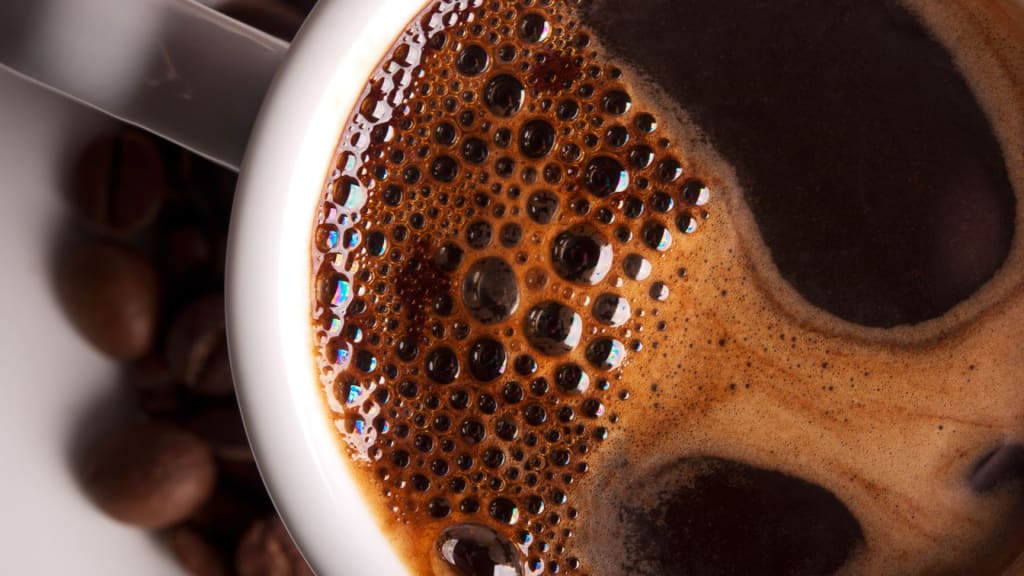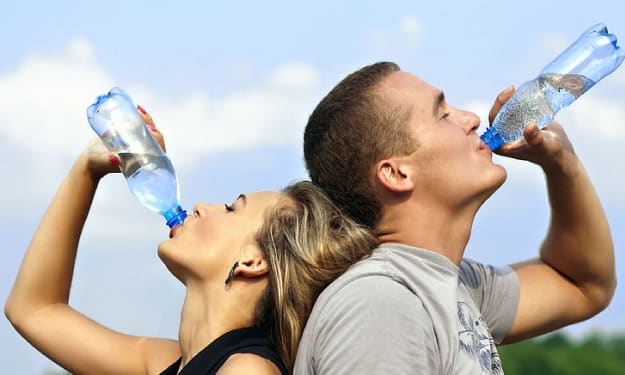HOW DOES CAFFEINE KEEP US AWAKE?
Caffeine Can Also Enhance Positive Feelings

Each year, over 100,000 tons of caffeine are consumed worldwide. This is equivalent to the weight of 14 Eiffel Towers. Most caffeine is consumed in coffee and tea, but it's also found in some sodas, chocolate, caffeine tablets, and even beverages labeled as caffeine-free. Caffeine helps us feel alert, focused, happy and energetic, even when we haven't gotten enough sleep. But it can also raise our blood pressure and make us anxious. It's the most commonly used drug in the world.
So how does it keep us awake?
Caffeine has evolved in plants where it serves multiple purposes. In high doses, such as those found in the leaves and seeds of certain species, it's toxic to insects. However, when ingested in lower doses, as found in nectar, it can help them remember and revisit flowers. In the human body, caffeine acts as a stimulant on the central nervous system. It keeps us awake by blocking one of the body's main sleep-inducing molecules, a substance called adenosine. The body needs a constant supply of energy, which it gets by breaking down an energy-rich molecule called ATP. This releases adenosine, the chemical backbone of ATP. The neurons in your brain have receptors that are perfectly tailored to this molecule. When adenosine docks with these receptors, it triggers a cascade of biochemical reactions that cause neurons to fire more slowly and slow the release of important brain signaling molecules. In other words, you get sleepy.
Caffeine is what is known as an adenosine receptor antagonist. This means that it interrupts this process of slowing down neurons by blocking adenosine receptors. Caffeine and adenosine have a similar enough molecular structure that caffeine can wedge itself into the adenosine receptors, but not close enough to activate them. In short, adenosine inhibits your neurons. Caffeine inhibits the inhibitor and therefore stimulates you. Caffeine can also enhance positive feelings. In some neurons, the adenosine receptors are connected to receptors for another molecule called dopamine. One of the jobs of dopamine in the brain is to promote feelings of happiness. When adenosine docks at one of these paired receptors, it can make it harder for dopamine to take its place, disrupting its mood-boosting effects. However, when caffeine takes the place of adenosine, it doesn't have the same effect, and dopamine can enter. There is evidence that caffeine's effect on adenosine and dopamine receptors may also be beneficial in the long term, reducing the risk of diseases such as Parkinson's, Alzheimer's and some cancers. Caffeine may also increase the body's ability to burn fat.
Some sports federations even believe that caffeine gives athletes an unfair advantage and have restricted caffeine consumption. From 1972 to 2004, Olympic athletes weren't required to exceed a certain blood concentration of caffeine to compete. Of course, not all of caffeine's effects are so helpful. It can make you feel better and more alert, but it can also increase heart rate and blood pressure, cause increased urination or diarrhea, and contribute to insomnia and anxiety. In addition, the foods and beverages that contain caffeine have their own effects on your body that need to be considered. Your brain can adapt to regular caffeine consumption. If your adenosine receptors are constantly clogged, your body will make additional receptors. This way, even in the presence of caffeine, adenosine can do its job of signaling the brain to shut down. For this reason, you may need to consume more and more caffeine to feel awake. There are more and more adenosine receptors to block. This is also why if you suddenly stop taking caffeine, you may experience unpleasant withdrawal. Since there are many receptors and no competition, adenosine can work overtime and cause symptoms like headaches, fatigue and depressive moods. But in a few days, the extra adenosine receptors disappear, your body adjusts, and you feel as alert as ever, even without an infusion of the world's most popular stimulant.
About the Creator
Hülya Nişaner Köksoy
Turkish born author.
Please take the time to leave a comment on my stories!





Comments
There are no comments for this story
Be the first to respond and start the conversation.